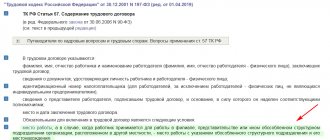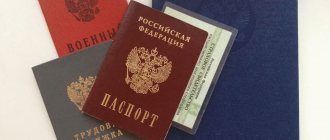The essence of the will
A will is a one-way transaction where the owner of the property decides who will receive his or her savings and under what circumstances. The text specifies the share of the heirs in the bequeathed property and who will get what part. Bequeath real estate, any other material assets, as well as debts and rights. The rules for the distribution of inheritance are established by law, but if there is a will, the property is divided precisely according to the will of the owner.
A will does not give anyone any rights until the death of the owner. The testator has the right to bequeath property to those persons whom he considers necessary. These will not necessarily be blood relatives or spouses. You can transfer rights, savings and property to any non-relative person, organization or charitable foundation that will be indicated in the text.
A will resolves many legal issues. For example, one piece of paper with the owner's signature can establish that the property will go not to a cousin, but to a neighbor. And it is almost impossible to challenge this document.
Also, with the help of a will, you can limit the rights of the heirs or impose certain obligations, only upon fulfillment of which the heir will be able to dispose of the inheritance. But there are some restrictions on the distribution of the owner’s property and on the preparation of the document.
Making a will
The owner has the right to bequeath any property that belongs to him. The main thing is that the compiler has rights to these values. With such a document, real estate, a car, and even money in bank accounts are bequeathed at one’s own discretion.
If you do not write a will, then everything will be divided proportionally between the relatives of the deceased, taking into account legal rights and shares. But, when you want to bequeath property to other people who are not related, this can only be done by will.
The document is certified by a notary. If the testator cannot move freely or for some other reason, then he can call a notary to his home. During the life of the owner, the heirs have no rights to the property. Everything bequeathed becomes their property only after the death of the testator.
Any capable citizen aged 18 years or older is allowed to make a will. Many people see the writing of a will as preparation for death, but in fact the document helps to avoid unpleasant squabbles and redistributions between relatives. Rather, those who make wills long before old age demonstrate their financial literacy and foresight. Moreover, before his death, the testator can rewrite it many times.
Such a document is especially important for those who live without official marriage registration or for those who want to take care of their children or relatives with whom they do not live. If the owner does not notarize his will, his property will still be divided. All heirs are distributed in order and each is awarded a part of it. As a result, everyone will have their own share in the property or common business of the testator, which can cause disputes and conflicts between the heirs.
Without the participation of a notary
A piece of paper that states who gets what after the death of the owner without notarization is deprived of legal force. In this case, all shares and rights of the heirs will be distributed according to the legislation of the Russian Federation.
When certifying a will, the notary receives one copy of the document for his safekeeping. After the death of the owner, the notary will issue each heir with his certificate of right to the property left behind.
Previously, in small settlements and villages, the certification of wills was entrusted to the heads of local governments. But this has been canceled since 2021. Now you need to contact a notary who will carry out the procedure in accordance with the law.
If you are in special conditions and life circumstances, a will can be certified by:
- Consular employees when staying in another state.
- Chief doctors, heads of hospitals, other managers - if the testator is in a hospital or lives in a nursing home.
- Captains of sea vessels, if it is necessary to certify a document on a ship sailing under the Russian flag.
- Leaders of expeditions during their implementation.
- Commanders of a military unit during service.
- Heads of prisons or colonies, if the document is drawn up by a person in custody.
In emergency circumstances and the threat of death, non-notaries can certify the will of the owner. For example, after an accident, a heart attack or injury. To draw up the paper, two witnesses are needed, who will then confirm that this is exactly what the owner wanted. But if the citizen survives, the document must be confirmed by a notary within 30 days, otherwise it will be declared invalid.
Hide the will
It is not necessary to disclose to the heirs or relatives what exactly was bequeathed and to whom. You can hide the contents of a will even from a notary. In this case, it will be possible to find out about the will of the owner of the property only after the death of the owner.
When writing a will, the notary or any other person who notarizes the document usually knows the contents of the will. But telling anyone about the owner’s will is prohibited, as this would be divulging the secrets of the will. If a notary violates this rule, he may be fined.
But you can make sure that even the certifier does not know about the contents of the document. In this case, the testator writes a document and seals the finished text in an envelope. With two witnesses, he takes it to a notary, who seals the document provided to him in another envelope and certifies it. When the will is read out, it will be immediately obvious that the paper is being taken out of two envelopes.
Promise an inheritance and later change your mind
If a will has been drawn up and relatives are already expecting certain rights after the death of the owner, but he changed his mind and decided to change his will, then a new one should be written. So, in a few years or even months, a person can draw up more than a dozen documents, but only one will will have legal force - the last one.
However, it is not necessary to notify relatives of a change in decision. Their consent or permission is not required to write a new order. Also, it will not be possible to challenge a will only on the grounds that the owner of the property promised to transfer it to one heir, but according to the final will, transferred it to another. Only the certified document has weight, not the words of the deceased.
Managing what doesn't exist yet
In the text of the document, you can bequeath future property that does not exist at the moment. For example, a married couple plans to buy a home, but the husband has already written in the will that he transfers all the property to his wife. This way you can protect jointly purchased property from children from a previous marriage or other relatives on the spouse’s side.
But if a dacha is included in the will, and a few years later it is sold, then it will not pass to the heir. After death, only what belonged to the deceased before death will be distributed. You can also not describe each thing in detail, but write in general - “everything movable and immovable.”
Don't leave a will
If you do not leave a will, the property will still be divided based on the shares of the heirs according to the law. In the absence of an order, the property after the death of the owner will be divided among the immediate family - spouse, children, parents. If they are not there, then priority goes to grandmothers, grandchildren, brothers and sisters. As a last resort, nephews, uncles or aunts can inherit property. If the owner has no relatives at all, then the property will go to the state.
Without a relationship and a will, a person will not be able to claim the property of the deceased. The man’s partner will not receive part of the apartment, even if she lived with him for more than 20 years, and a caring neighbor will not be able to take even one cup. In such cases, a will will be required.
Manage funds in the account
To bequeath money to heirs in bank accounts and deposits, you can write a testamentary disposition in the bank. A notary is not called for this purpose. A testamentary disposition is equal in legal force to a notarial will. But it gives the right only to money deposited in a bank, and not to a country house, car or other property.
You can only place an order at the bank where the deposit is made. You must have your passport with you. If there are several accounts within one bank, one testamentary disposition is sufficient, but several can be issued, one account per heir.
The money in the deposit is distributed among relatives in any shares. You can also set restrictions. For example, children will be allowed to withdraw money from the account only when they turn 18, and the wife will spend no more than 15 thousand rubles per month.
The heirs will have rights to the money only after they have entered into their rights. A testamentary disposition, like a regular will, can be reissued or revoked. All other property must have a separate will. Although it is also not necessary to draw up a testamentary disposition in a bank. Money on deposits in banks can be included in the general text of the will drawn up by a notary.
Deprive relatives of inheritance
According to the law, all shares of heirs are determined depending on the degree of relationship. Children receive property from the parent equally. But the owner can deprive his child or other relative of inheritance. For example, a mother can give everything to her eldest son, which means that the rest of her relatives will not automatically get anything. You can also specify in your will exactly who should be left without inheritance.
Not only testators, but also his relatives after the death of the owner can leave without inheritance. For example, a family may challenge a will if a deceased citizen bequeathed property to an unworthy heir, in particular to an alcoholic neighbor with whom he spent time together. This is difficult to do, but it is possible if it can be proven that the testator was incompetent or was forced to draw up a will in this form. However, it is impossible to disinherit elderly parents and young children.
Joint will of spouses
Until June 1, 2021, it was impossible to draw up a joint will between spouses. Now spouses can bequeath jointly acquired property in a joint document. So the husband and wife decide together who will receive the inheritance if both or one of them dies.
A joint will ensures that everyone's wishes are carried out. It will not happen that the wife will leave her husband’s children from his first marriage without an inheritance, and the husband will not bequeath everything to another woman. But the risk still remains. For example, after a joint will, a woman can go to a notary, write a new one on her own behalf and hide it from her husband. In the event of a divorce, the joint will becomes invalid.
If a man and a woman are not married, but cohabitate, then they will not be able to draw up a joint will.
The most important things about making a will
The general rule provides that a will can be drawn up in writing with subsequent notarial registration, however, certain life situations of an extraordinary nature, which preclude the prompt involvement of a notary in the performance of their functions in certifying the will, forced the legislator to provide for other persons who can certify the will and give it corresponding status. Such persons include:
- The chief doctor, their deputies - the beginning. honeys, doctors on duty when the testator is being treated in a health care institution that they supervise. The same applies to nursing homes; testators who are kept in such an institution may request that the will be certified by an authorized official from among the administration;
- The captain of a long-distance vessel while the testator is on the voyage;
- The head of an expedition, Arctic station or seasonal base, when the testator takes part in the expedition, etc.;
- The head of the institution of the penitentiary system in which the testator is serving a sentence of imprisonment;
- Commander of a military unit, etc. in relation to the testator undergoing service.
It is obvious that these persons have the right to perform such functions that are unusual for them only in exceptional cases and only when they perform their official duties. If possible, if the situation persists, it is still worth resorting to the services of professional licensed notaries. Moreover, the latter also provide home call services, etc.
A will is intended to ensure the fulfillment of the last will of the testator, to determine the painless subsequent fate of the property, and in some cases to ensure the rights of the heirs. The procedure for its registration is designed to ensure strict execution of the will, excluding pressure and interference from outsiders.
Any capable person has the right to dispose of his property at his own discretion. And if he is not indifferent to what will happen to his property after his death, then he can take care in advance of drawing up his last statement of will. In this article we will look in detail at the nuances of drawing up a testamentary disposition.
The body of the document must contain the following required information:
- Date of drawing up the order;
- Information about the place of compilation;
- Personal data of the testator;
- A list of bequests with a detailed description of each item;
- Date of birth and personal data of heirs;
- Compiler's signature;
The principles of wills are that every Russian is free to bequeath property in his ownership to various persons (including foreigners), government, commercial, and charitable organizations. It is permissible to bequeath the entire existing estate or its individual objects or items. Where to start writing a document, in what form is it better to leave it and where to submit the form to avoid mistakes?
Before you undertake the steps of making a will, you need to prepare your estate for this purpose. If you are going to submit documents for real estate, you must be 100% sure that it can be included in the transaction. Be sure to pay off all debts and remove encumbrances from him.
You must be the rightful owner, and bequeath to your heirs the property that has no encumbrance. Think about this in advance.
Next, we'll tell you more about writing a document.
At the very end of the will there must be a signature of the person, and there must be a transcript of it. The testator must sign.
In a situation where a given person cannot sign due to his physical characteristics, the will can be signed by a trustee, or a notary certifies the fact that the will was drawn up without a signature.
These recommendations must be followed in order to complete such an important document.
A will is invalid if it contains errors. If incorrect information from an identification document is provided, the legal force of the will is also lost. The invalidity of such a document may become the basis for a violation of the rights of third parties.
Therefore, carefully check all the nuances before signing such a document. Only a court can recognize a document as invalid and makes a decision on this. If a violation is discovered, then there are grounds for such statements.
Making a will
A will can be written in free form. The main thing is to describe everything clearly and specifically, so that there is no possibility of interpreting the proposal ambiguously. Will templates are available on the Internet, but it is not advisable to use them. Without experience and legal education, you can misunderstand a certain proposal and, instead of disinheriting, on the contrary, give all the property to a relative. It is most convenient to write a will together with a notary.
The document can be handwritten or typed in a word processor on a computer. In extreme circumstances or when making a closed will, it must be written by hand.
Other mandatory requirements when making a will:
- The citizen must be at least 18 years old.
- The legal capacity of the testator.
- At the time of death, a certificate of title to property must be issued in the name of the deceased. The notary does not need to provide such confirmation.
- Mental and physical health, without signs of alcohol intoxication or exposure to other narcotic or psychotropic drugs.
- Only the owner has the right to bequeath property at his own discretion. No one has the right to influence how the testator distributes his property and rights.
Also, the testator himself must draw up a will. You cannot give a friend or relative a power of attorney for such an action.
How to make a will correctly
If something threatens the existence of the testator, the document is drawn up without the presence of a lawyer or eyewitnesses. The will is drawn up in a simplified form and has specific features.
- The document is drawn up and signed personally by the testator.
- The document is recorded if there are eyewitnesses, they will then bring the paper to the relatives, and taking into account the data of the witnesses, the inheritance document will be executed.
- A person’s wishes are taken into account only within a month after death.
- Relatives can enter into an inheritance written under the law only through justice.
- The testator writes the deed independently. If due to certain circumstances he cannot do this, the notary writes the document for him, but reads it aloud after writing.
- The testator must personally sign the will. If this is impossible, then the act is signed by another person, but an authorized body must be present when signing the document.
- The lawyer writes down and substantiates all deviations from the regulations in a document.
- The act is determined to be valid under those circumstances if the day and location are written on it.
- The presence of eyewitnesses when drawing up an act is mandatory.
- A document concluded without the presence of a lawyer is drawn up in the presence of one eyewitness.
- Indication of the contact details of the participants in the process without delay.
The will is written by hand or printed on a computer and signed by witnesses. The will is drawn up in two copies, one remains with the notary, and the other is given to the testator. If a document is drawn up in closed form, then it remains with the notary, and the testator is given a document confirming acceptance of the document.
- Owner's passport
- Copies of successors' identity cards
- Title documentation for property
Some specialists ask to present medical certificates so that there is no possibility of appealing the act.
The inheritance can be movable and immovable property, shares, land, utensils, bank deposits, investments.
The owner has the right to reject the written will. This can be achieved by two means:
- By means of a refusal order.
- The newly drafted act denies the existence of the past.
Wills can be made an unlimited number of times. An act is considered powerless if there is a deviation from the rules for drawing up the act.
- He carries out conscious illegal acts against a relative. For example, murder, attempt on well-being.
- Persons who are incompetent are also recognized as unworthy successors.
- Persons acting for selfish purposes to increase their share.
- Persons who avoid fulfilling their duties of caring for the testator. For example, grandchildren refuse to look after their grandmother.
- Persons deprived of parental rights.
Definition of property
You can bequeath not only rights, money and property that you already have, but also those that will appear in the future. For example, a house on a plot of land has not yet been completed, but it can already be included in the text of the document. If you specify only the land, the house will subsequently be divided by law among all heirs. You can also bequeath royalties for a book, even if it has not yet been published or written.
All parts of the property that remain unprobate will be divided according to the law. If there is accurate information about what else will be owned in the distant future, you can bequeath all the property that will belong to the testator at the time of death.
In addition, the owner has the right to appoint an executor of the will - an executor. He will ensure that the will of the testator is carried out and that the property is not stolen ahead of time. At the same time, he must be reimbursed for all expenses incurred in performing his duties. If there is no executor, then the heirs themselves will monitor this.
If the testator currently has a loan, he has the right to bequeath the pledged property: a car, an apartment. When concluding a loan agreement, he remains the owner of the property that he pledges as collateral. If at the time of the death of the mortgagor the rights still remain with him, then this property will be passed on by inheritance.
The heir has the right to refuse an unprofitable business or loan payment that was inherited to him. Or determine that payment of debts will come from the property of the testator. Therefore, the apartment or any other personal property of the heir will not be included in the settlement of inherited debts.
Inheritance by will. Types of wills
Just as you can bequeath, you can donate any real estate: an apartment, a house, a plot of land, a dacha, your rights under the DDU agreement.
Who can give real estate to?
Almost anyone. This is a common way of transferring real estate to close relatives, who will not have to pay tax on the property received. Also, the donated real estate will not be considered jointly acquired property during marriage - if a mother decides to give an apartment to her daughter who is married, then it will belong only to her - the husband will not have any rights to the donated real estate.
But there are categories of persons who, due to the nature of their activities, do not have the right to receive property as a gift: these are civil servants, employees of educational, medical institutions and social protection agencies, and employees of municipal services. Donations between commercial organizations are also prohibited. But at the same time, a legal entity can donate real estate to an individual and vice versa.
Gifting is usually unconditional. The giver cannot demand material benefits or the fulfillment of any conditions for his gift.
However, if the donor wants the property to pass to a specific person, and not, for example, to his heirs, the contract can stipulate that if the donor survives the donee, the contract will be canceled and the property will return to the previous owner (if it was in property of the accused).
When concluding a gift agreement, the main thing to understand is that after registering the transfer of ownership, the property no longer belongs to you and you do not have any rights to it. It's important to keep a sense of reality when making such expensive gifts, especially if this is your only place to live. A gift agreement, unlike a will, cannot be changed or revoked - once the agreement is signed and registered with Rosreestr, there is no turning back.
- Decision of the Supreme Court: Determination N 5-КГ17-151, Judicial Collegium for Civil Cases, cassation The testator has the right to cancel or change the will made in accordance with the rules of Article 1130 of this Code. According to paragraph 1 of Article 1124 of the Civil Code of the Russian Federation, a will must be drawn up in writing and certified by a notary. Failure to comply with the rules established by this Code regarding the written form of a will and its certification entails the invalidity of the will...
- Decision of the Supreme Court: Determination No. 18-КГ17-2, Judicial Collegium for Civil Cases, Cassation At the same time, the appellate court pointed out that since during his lifetime Strizhak G.S. in the form established by law, provided for in Article 1124 of the Civil Code of the Russian Federation, did not draw up a will in favor of E.N. Kvakova, the consequences of the invalidity of a void transaction are subject to application in the form of annulment of E.N. Kvakova’s right. for the disputed property...
- Decision of the Supreme Court: Determination N 18-КГ16-101, Judicial Collegium for Civil Cases, Cassation According to paragraph 1 of Article 1118 of the Civil Code of the Russian Federation, property can be disposed of in the event of death only by making a will. According to the general rule established by Articles 1124-1125 of the Civil Code of the Russian Federation, a will must be drawn up in writing and certified by a notary. Drawing up a will in simple written form is allowed only as an exception in the cases provided for in Article 1129 of this code...
You can bequeath property (in whole or in parts) to anyone:
- to a relative, friend or stranger;
- one person or several;
- citizens of another country;
- organization (for example, a library or academy);
- to the state.
Just in case, you can indicate a “spare” heir in the will if, for any reason, the “main” heirs cannot accept the inheritance - for example, they die before the opening of the will or abandon the property.
The emergence of rights to property when conditions are met
A will not only gives heirs rights to property. Some owners set conditions within the text of the will for obtaining one or another right. In this case, two methods are used:
- Testamentary refusal. In this case, the heir will receive the property only if he assumes some property obligations. For example, the spouse will receive all rights to the apartment, provided that until the end of her days she will support and provide for the elderly mother of the testator. Or the daughter from her first marriage gets an apartment if she gives up the country house in favor of her father’s new wife.
- Testamentary assignment. In such a situation, the testator assigns some socially useful responsibilities to the heir. For example, parents leave their daughter a country house, and she undertakes to organize an art gallery in one wing. Or the husband leaves the company to his wife, and she takes upon herself the responsibility to transfer 10% of the monthly profits to a charitable foundation.
If the heir refuses the conditions set, he will not be able to enter into inheritance rights under the will.
Scheme for annulment of a will for an apartment by a testator
To revoke a will, you need to visit any active notary. In this case, you should ask to cancel the existing document or write a new one, according to which this cancellation will occur.
As for the notary, he is obliged to carry out the procedure in accordance with established legislation. The specialist, first of all, must make sure of the testator’s legal capacity, his voluntary intentions and the absence of threats and pressure from outsiders.
An order to revoke a will is drawn up in writing. It must be written by the testator himself under the supervision of a notary, who then certifies the document. The relevant data is entered into the notary register.
The heirs and other persons are not informed about the fact of cancellation of the will.
Choice of heirs
The testator has the right to bequeath all of his property to a stranger, and not just to relatives. But it is advisable to indicate in the document who the heir is to the testator or any other information useful for identification. This way, it will be possible to avoid confusion if one surname is indicated on the documents, and another in the will.
When accepting inherited property, the heirs will have to prove that the will refers specifically to them and not to other persons. This is easier to do if the document indicates the degree of relationship, even if it is a great-niece of a cousin.
Testators sometimes wonder whether they can bequeath their property to animals. In Russia, this cannot be done directly, but there are ways to provide a decent life for your beloved pet. In this case, the responsibility for caring for the animal is assigned to the heir. Since no additional means of control are provided, only someone who is trusted by the owner during his lifetime will be suitable for this role.
Invalidity of the will
Only a will drawn up by a competent adult citizen (who has reached the age of majority and sane), written down on paper and certified by an authorized person, will be valid and granting the right to divide the inheritance. The invalidity of a will is determined by the court at the request of the interested heir. To recognize a document as void, you do not even need to contact a judicial authority (Article 1131 of the Civil Code of the Russian Federation).
A lawsuit is filed in the district court with a demand to recognize individual clauses or the entire text of the will as invalid . The court will satisfy the statement of claim if the theses contradict the law, the document was drawn up in violation of the procedure, the testator’s signature is not certified, or there are doubts about the legal capacity or adequacy of the testator. A similar thing will happen if it can be proven that at the time of signing the will the testator was under the influence of threats or under the influence of alcohol.
The deadline for filing a claim is one year from the moment the person learned about the infringement of his rights, but only after the opening of the inheritance. A will can be declared void no later than 3 years after the establishing of the proving fact.
You should not entrust anyone with drawing up a document by power of attorney; make a collective expression of will; invite relatives as witnesses; forget to invite witnesses if they are needed; use a manhandle without significant reasons. For these reasons, the document will be considered void .
If, by his expression of will, the testator demands to disinherit the successor, who is entitled to an obligatory share by law, or is inclined to illegal blackmail, his will in such clauses may be challenged and declared invalid . Claims against the successor may be illegal (for example, the wording “the heir who tries to challenge the will will be deprived of his share”) or the desire for him to perform any illegal action.
Example Natalya N. filed a lawsuit to challenge a will. She asked to invalidate the will document signed by her father. Reasons: the man drank alcohol during his lifetime, and several years before his death he was limited in legal capacity by a court decision. According to the case materials, this actually took place. However, the will was drawn up a decade and a half before the man’s death, even before he was partially deprived of his legal capacity. The court refused to invalidate Natalya's will.
Certification of a will
A document can be certified by any notary, regardless of the place of residence of the property owner. In this case, you need money to pay the state fee and a passport. The state fee for certification is 100 rubles. If the will is drawn up by a notary, then it is necessary to pay for this service and the preparation of copies of the document. The cost of services varies by region, but the approximate amount is about 1000 rubles including duty.
You can save money and make a will yourself; it must include:
- date and place of compilation;
- document's name;
- Full name, passport details and date of birth of the compiler;
- confirmation that the testator is “of sound mind, clear memory and acts voluntarily”;
- contents of the will and information about the heirs.
The notary will write the rest. The whole process will take about 10-20 minutes. One copy of the will is kept by the testator, the other by the notary.
How to make a will correctly during your lifetime?!
- only part of the property will be bequeathed (for example, the testator acquired part of the property after making the will);
- or if the heirs under the will do not accept the inheritance or refuse it, or do not have the right to inherit, or are removed as unworthy.
You can draw up a will yourself or with the help of a notary, but in any case you will need to pay a 100 ruble state fee for notarization. The services of a notary or lawyer for consultation and drafting the text of a will depend on the region and the notary company itself - on average it will cost 2-4 thousand rubles.
Entering into an inheritance will also require money - close relatives will have to pay 0.3% of the value of the property (but not more than 100 thousand rubles), other persons - 0.6% (but not more than 1 million rubles).
A will provides ample opportunity for subsequent maneuvers - it can be changed at any time, or even revoked as if it never existed. Also, during his lifetime, the owner can do whatever he wants with his real estate, even with a written will - rent it out, register other tenants in it, donate it, sell it - in the last two cases, when the will is disclosed, the heirs will simply have nothing to receive.
If the property has one owner, it is very simple to draw up a gift agreement - draw it up in free form, sign it by both parties and, together with the documents for the property, submit it for registration to Rosreestr. There is no need to have such an agreement certified by a notary. But if only a share in an apartment is given as a gift, the agreement will need to be notarized (at the same time, the owners of the remaining shares do not have the right to a pre-emptive right to purchase, unlike a transaction with the purchase and sale of a share).
If the donor has minor children who are also owners of real estate, then permission from the guardianship authorities will be required to conclude a gift agreement. And if the property was purchased during marriage, the notarized consent of the husband or wife will be required.
Alternative to a will
You don't have to rely only on a will. The owner has the right to dispose of the acquired property at his own discretion during his lifetime. For example, register a deposit in the name of your daughter from your first marriage, and a car in the name of your son from your second. In addition, you can draw up a marriage contract with your second wife, according to which she will be the sole owner of the apartment.
But all these rights are transferred during life. Therefore, if the car is registered directly to the son, and the father drives by proxy, then nothing prevents the young man from selling the car and using the money at his own discretion. The daughter can do the same. Take money out of the deposit account and spend it now, not after the death of a parent.
With a will, such situations are impossible. Here the owner has complete control over his property until the end of his days, and no one will be able to sell it. If circumstances change, the owner can rewrite the will and appoint other heirs. A marriage contract, deed of gift or purchase and sale are transactions that grant rights to property immediately.
For example, if a son from his first marriage has never communicated with his father for 20 years, and his stepdaughter will look after him until the end of his days, then the second will may completely contradict the first. Its text may even contain an indication that the son will not receive anything after the death of his father. But such a condition will not come into force if the child is a minor at that time. In this case, regardless of the will, the children receive their share of the property, just like their elderly parents.
In addition, the owner can use two other options during his lifetime for the subsequent transfer of property to his heirs:
- draw up an inheritance agreement;
- establish an inheritance fund.
There were no such opportunities in Russia until 2021, but even now they are used quite rarely. Because everything can be organized correctly only with the help of an experienced lawyer. An additional disadvantage is that in Russian legislation there are still many ambiguities with such inheritance options.
about the author
Klavdiya Treskova - higher education with qualification “Economist”, with specializations “Economics and Management” and “Computer Technologies” at PSU. She worked in a bank in positions from operator to acting. Head of the Department for servicing private and corporate clients. Every year she successfully passed certifications, education and training in banking services. Total work experience in the bank is more than 15 years. [email protected]
Is this article useful? Not really
Help us find out how much this article helped you. If something is missing or the information is not accurate, please report it below in the comments or write to us by email
Basic information in the will
When drawing up a will using a sample or yourself, it is important to indicate the following information:
- The subject of a will, that is, property that will be transferred to the heirs after the death of the author of the document.
- Full name of the heirs and testator.
- Their shares. It is important to accurately divide shares in property. In case of errors and inaccuracies, the will may be declared invalid.
- List of unworthy heirs (if the testator wants to exclude someone from the legal heirs).
- Place and time of making a will.
- Signature.
Additionally, special conditions for the transfer of property may be specified. For example, that a specific heir will receive an apartment upon reaching 18 years of age or after graduating from university, etc.
Comments: 0
Your comment (question) If you have questions about this article, you can tell us. Our team consists of only experienced experts and specialists with specialized education. We will try to help you in this topic:
Author of the article: Klavdiya Treskova
Consultant, author Popovich Anna
Financial author Olga Pikhotskaya











